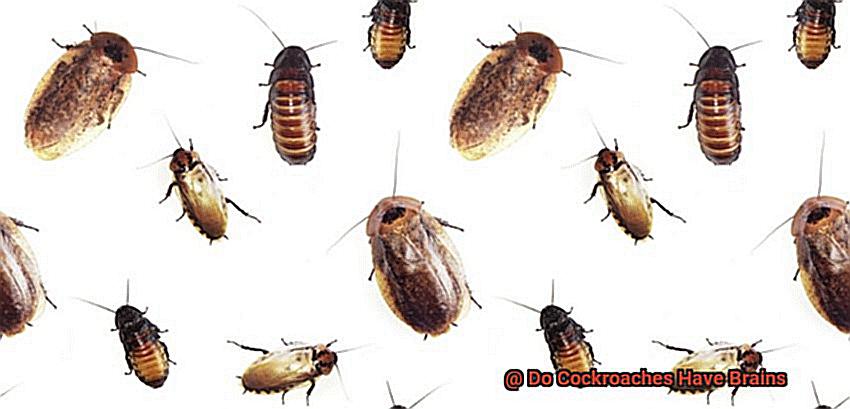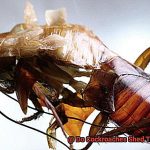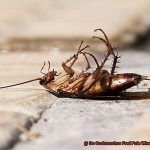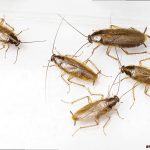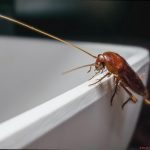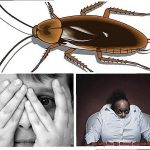Cockroaches are the ultimate survivors, able to withstand extreme conditions and even nuclear radiation.
They’ve been known to survive without heads, leading many to question their intelligence and adaptability. But don’t be fooled – these creepy crawlies have some of the most complex insect brains around.
In this blog post, we’ll take a deep dive into the anatomy and functionality of a cockroach’s brain. We’ll explore how it helps them navigate their environment and make split-second decisions that often outsmart even the most experienced exterminators.
Get ready to learn about their impressive sensory systems, which allow them to process a vast amount of information about their surroundings. These systems make them incredibly difficult pests to treat because they’re always one step ahead.
We’ll also delve into how their brains are wired to coordinate their numerous legs, eyes, and antennae. It’s no easy feat, but cockroaches make it look effortless.
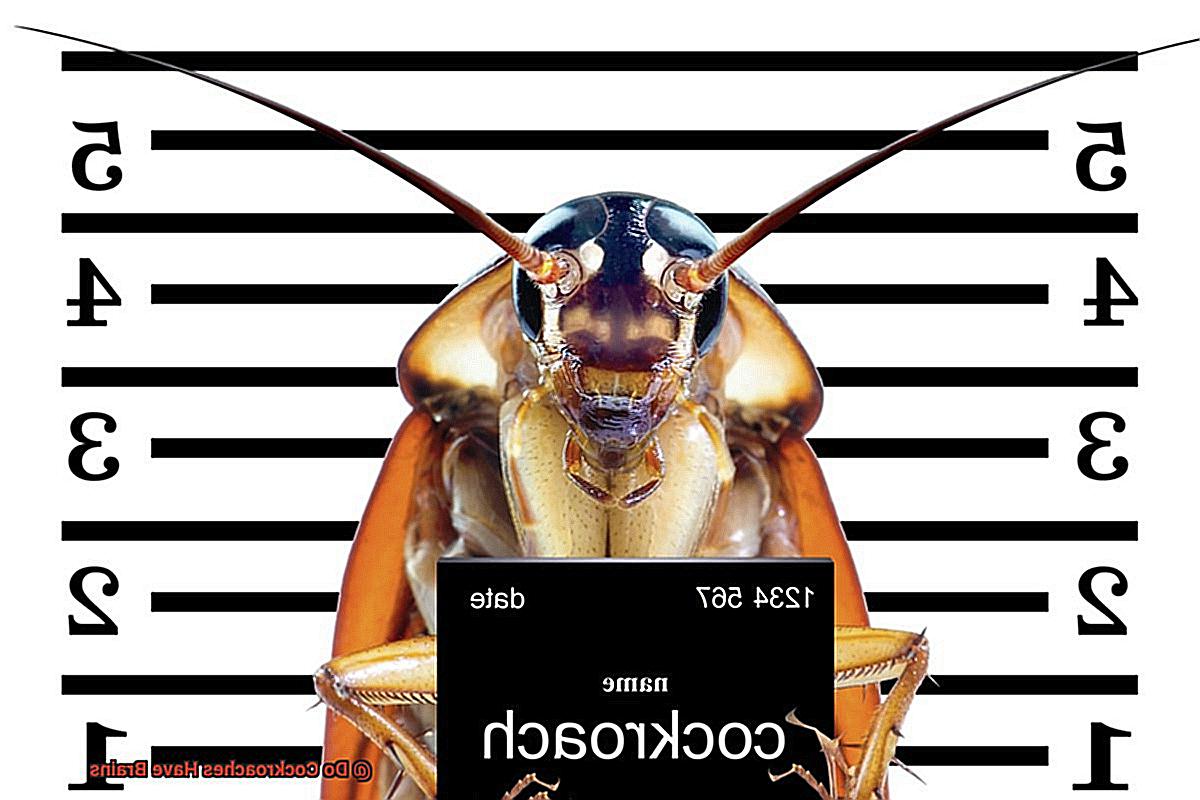
By the end of this blog post, you’ll have newfound respect for these resilient critters that have been around for millions of years.
What is a Cockroach Brain?
Contents
Cockroaches are one of the oldest insects on the planet, and they owe much of their survival to their incredible adaptability.
And what makes them so adaptable? Their highly specialized brain, of course.
Although not as complex as a human brain, the cockroach brain is a marvel of engineering. At its center lies the protocerebrum, which processes visual information.
This is essential for cockroaches, as vision plays a critical role in their navigation and food-finding. But that’s not all – the cockroach brain also has other critical structures, such as the deutocerebrum and tritocerebrum.
The deutocerebrum is responsible for processing information from the antennae, which are crucial sensory organs that help these insects detect pheromones and other chemicals in their surroundings. Meanwhile, the tritocerebrum plays a vital role in regulating their digestive system.
What’s truly fascinating about cockroach brains is that they have a decentralized nervous system. This means that clusters of neurons throughout their body can control specific behaviors without input from the brain.
This allows them to react quickly to stimuli without having to wait for signals to travel all the way to their brain and back. Despite their size and simple structure, these insects are intelligent creatures capable of learning from experience and remembering things for extended periods.
For example, if a cockroach learns that a particular food is poisonous or dangerous, it will avoid it in the future. Additionally, cockroaches exhibit social behaviors such as caring for their young and grooming each other.
So there you have it – the cockroach brain may be different from ours, but it’s still an impressive organ that allows these insects to survive and thrive in a variety of environments.
Do Cockroaches Have Brains?
These pesky insects have a surprisingly complex nervous system for their size.
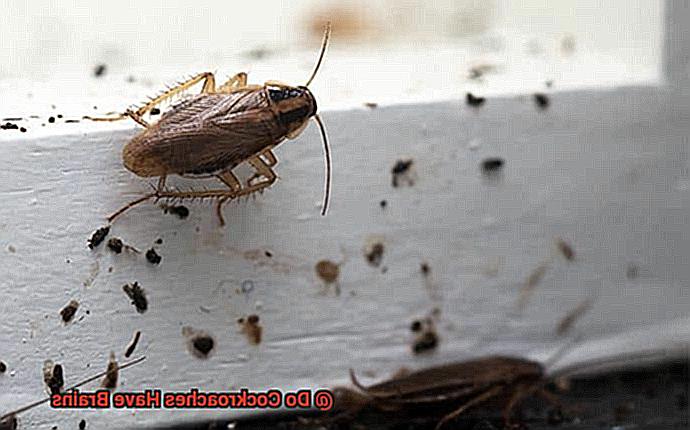
With over 4,500 identified species, cockroaches belong to the class Insecta and are undoubtedly one of the most successful animal groups on Earth. You might be surprised to learn that a cockroach’s brain is located in its head and is made up of fused ganglia, clusters of nerve cells.
While it may not be as sophisticated as a mammal or bird brain, a cockroach’s brain is still capable of processing information and coordinating the insect’s movements and behaviors. But here’s the fascinating part: cockroach brains are highly adaptable.
If one area of the brain is damaged, other regions can take on new functions and compensate for the loss. Some species of cockroaches can even navigate using their sense of smell if their visual centers are damaged.
So, while cockroaches may not be as intelligent as humans or other animals with more complex brains, they are still capable of processing information and making decisions based on their experiences and surroundings.
How Does a Cockroach Brain Differ from Human Brains?
Cockroaches may be synonymous with creepy crawlies, but their intricate nervous system is nothing short of remarkable.
How do these tiny insects navigate their environment successfully? Let’s dive into the differences between the cockroach brain and the human brain.
Firstly, the human brain is an incredibly sophisticated organ responsible for our intelligence, emotions, and behavior. Conversely, the cockroach brain is much simpler in structure and function.
It is divided into three main parts: the protocerebrum, deutocerebrum, and tritocerebrum. Each part has a specific function, with the protocerebrum processing visual information, the deutocerebrum processing olfactory information, and the tritocerebrum controlling motor functions.
One striking difference between the two brains is the number of neurons. While the human brain has billions of neurons at its disposal, the cockroach brain has only around one million.
This means that cockroaches have limited cognitive abilities compared to humans. Furthermore, their behavior is largely predetermined by their genetic makeup due to their brains being hardwired to respond to specific stimuli.
Despite these limitations, cockroaches can perform complex tasks such as navigating mazes, avoiding obstacles, and finding food sources. Their innate ability to process sensory information quickly and efficiently allows them to do so.
In fact, some researchers suggest that cockroaches are capable of basic problem-solving and decision-making. While the cockroach brain may not be as sophisticated as the human brain, it still allows these insects to carry out essential functions for their survival.
It’s an impressive feat considering their limited neural capacity.
Are Cockroaches Intelligent Creatures?
Despite being seen as pests that carry diseases, these creepy-crawlies have a level of intelligence that’s worth noting.
Contrary to popular belief, cockroaches have a complex nervous system and brain that allow them to survive in harsh environments. Researchers at the University of Tokyo conducted a study showing that cockroaches could learn and remember specific smells associated with food.
This type of learning is known as classical conditioning, which is something that even humans do. Moreover, cockroaches exhibit problem-solving skills.
If they encounter an obstacle in their path, they will try to find a way around it. If they can’t find a way around it, they will use trial and error to determine the best course of action.
While cockroaches may not be as intelligent as humans or other animals, their level of intelligence is certainly impressive for such small creatures. These abilities have helped them survive for millions of years, even in some of the harshest environments on Earth.
It’s a resilient creature with some remarkable abilities that enable it to survive in its environment.
Examples of Cockroach Intelligence
When it comes to intelligence, cockroaches may not be the first creature that comes to mind, but these resilient insects have some incredible survival skills.
They possess an impressive ability to learn and adapt to new environments quickly. They can quickly detect and avoid danger, such as insecticides or predators, allowing them to survive in even the harshest conditions.
But their intelligence doesn’t stop there. Cockroaches have also demonstrated problem-solving skills in laboratory experiments.
Researchers challenged them with obstacles to navigate, such as mazes or barriers, and these clever critters found alternative routes and solutions to reach their goal. This shows that they can think creatively and adapt to unexpected challenges.
Cockroaches also have incredible sensory abilities, allowing them to navigate their environment with ease. They can sense vibrations through their legs, which helps them detect the location of potential threats or food sources.
And with an excellent sense of smell, they can locate food and mates with remarkable efficiency. While some may view cockroaches as pests, their intelligence is truly impressive.
Their ability to learn, problem-solve, and adapt to new situations is a testament to their resilience and survival skills.
How to Control and Get Rid of Cockroaches
Cockroaches are one of the most resilient and difficult pests to control. They can survive in extreme temperatures, go without food for weeks, and even survive without a head for a short period. However, despite their hardiness, cockroaches do have brains. In fact, they have a relatively complex nervous system that allows them to sense their environment and react accordingly.
To control and get rid of cockroaches, it’s important to understand their behavior and habitat. These creepy crawlers love warm, humid environments and are attracted to food sources such as crumbs, grease, and garbage.
They can enter your home through cracks, crevices, and even drain pipes. The key to preventing infestations is to keep your kitchen clean and free of food debris. Cockroaches are attracted to food sources, so eliminating those sources can help reduce their population.
Here are some information that can help you effectively control and get rid of cockroaches in your home:
The Importance of Good Sanitation Habits
One of the best ways to control and eliminate cockroaches is by practicing good sanitation habits. This includes keeping your kitchen clean and free of food debris. Make sure to clean up spills and crumbs promptly, store food in airtight containers, and take out the trash regularly. By keeping your home clean and free of food sources, you can prevent cockroach infestations from occurring.
Using Baits, Traps, and Insecticides
There are several methods for controlling and eliminating cockroaches, including using baits, traps, and insecticides. Baits work by attracting cockroaches with a food source that has been treated with an insecticide.
Traps use a sticky surface or a pheromone-based lure to capture cockroaches. Insecticides can be applied as sprays or dusts to areas where cockroaches are likely to hide. It’s important to follow the instructions on any products you use for controlling and eliminating cockroaches.
Professional Pest Control Services
If all else fails, you may need to call in a professional pest control company. They have access to more powerful insecticides and can help eliminate a larger infestation quickly and safely. Professional pest control services can also help prevent future infestations by identifying areas of your home that may be susceptible to cockroach activity.
Sealing Up Cracks and Openings
Cockroaches can enter your home through cracks, crevices, and even drain pipes. To prevent infestations, it’s important to seal up any cracks or openings in walls, floors, and foundations. This will prevent cockroaches from entering your home in the first place.
Persistence and Patience
Despite their resilience, cockroaches can be controlled and eliminated with persistence and patience. Remember that prevention is key when it comes to controlling cockroach populations in your home.
lkdLg0Nq4SQ” >
Conclusion
In conclusion, it’s clear that cockroaches are more than just resilient pests.
These creepy crawlies have a surprisingly complex nervous system and brain that enable them to make quick decisions and navigate their surroundings with ease. Their brains are incredibly specialized, with different regions dedicated to processing visual and olfactory information, as well as controlling motor functions.
Despite having only around one million neurons, cockroaches possess an impressive level of intelligence. They can solve problems, learn from experience, and adapt to new environments.
Cockroaches also exhibit social behaviors such as caring for their young and grooming each other. If you’re dealing with a cockroach infestation in your home, don’t panic.
There are several effective ways to get rid of these unwanted guests. Start by practicing good sanitation habits and sealing up any cracks or openings in your walls or foundation.
You can also use baits, traps, or insecticides to control the population. And if all else fails, don’t hesitate to seek professional pest control services.
Despite facing numerous challenges over millions of years, these insects continue to thrive in various environments across the globe.

